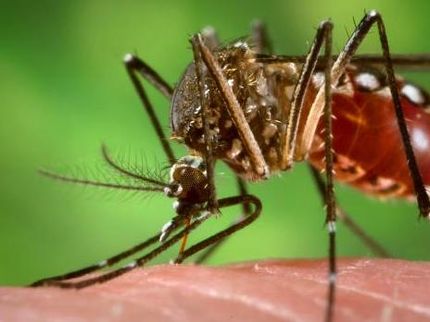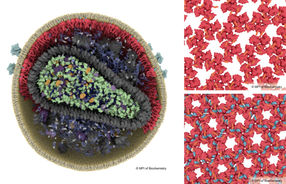$1.6 million grant to lead development of resistance-detecting field kit
Liverpool School of Tropical medicine (LSTM) has been awarded a £1.1m grant by the US National Institutes of Health to lead a five year project to develop a Field Applicable Screening Tool (FAST) kit to detect resistance to public health insecticides in mosquitoes.
The two principal methods for control of malaria in sub-Saharan Africa are the use of insecticide-treated bednets (ITNs) and indoor residual spraying (IRS) of insecticides. Scientists at LSTM, the Centers for Disease Control and Prevention in the US, Ghana's Biotechnology and Nuclear Agricultural Research Institute and Uganda's National Livestock Resources Research Institute will be working in partnership to identify genes that render malaria-carrying mosquitoes resistant to a range of insecticides that are used for IRS and ITN. At present information on underlying resistance mechanisms of the two most important mosquito species is very limited.
Based upon this knowledge, a rapid and cost-effective DNA-based screening kit will be designed, tested and rolled out for use by control programme staff in the regions of sub-Saharan Africa where malaria and filariasis, a disabling and disfiguring condition also spread by mosquitoes, is endemic. The new screening tools will provide information vital for predicting the success of IRS and ITN programmes.
The rollout of FAST kits will be facilitated in collaboration with existing programmes run by IVCC, TDR (a World Health Organisation programme for research and training in tropical diseases) and PMI (US President's Malaria Initiative).
Most read news
Topics
Organizations

Get the analytics and lab tech industry in your inbox
By submitting this form you agree that LUMITOS AG will send you the newsletter(s) selected above by email. Your data will not be passed on to third parties. Your data will be stored and processed in accordance with our data protection regulations. LUMITOS may contact you by email for the purpose of advertising or market and opinion surveys. You can revoke your consent at any time without giving reasons to LUMITOS AG, Ernst-Augustin-Str. 2, 12489 Berlin, Germany or by e-mail at revoke@lumitos.com with effect for the future. In addition, each email contains a link to unsubscribe from the corresponding newsletter.


























































